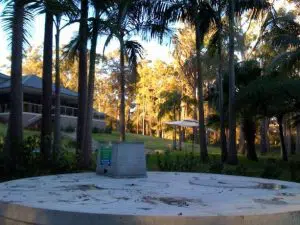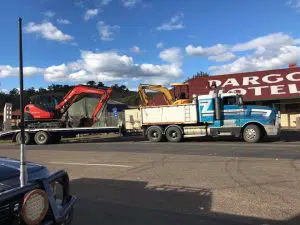Flushing the wrong items down your drains or toilet can lead to clogged pipes, costly repairs, and serious environmental damage. Here are the top 12 items that should never make their way into your plumbing system, along with tips for safer disposal alternatives.
1. Grease, Oil, and Fat
Grease, oil, and fat might seem harmless in liquid form, but they solidify as they cool, causing blockages in pipes. These fats also accumulate over time, combining with other materials to form stubborn clogs that can lead to backups and even sewer line damage.
Safe Disposal: Let the grease cool, pour it into a disposable container, and throw it in the trash. You can also wipe pans with a paper towel before washing.
2. Coffee Grounds
Even though coffee grounds may seem small and gritty, they don’t break down easily in water. Instead, they clump together and settle in pipes, eventually causing clogs, especially when mixed with other items.
Safe Disposal: Use coffee grounds in your garden or compost. They make excellent compost material and are great for acid-loving plants.
3. Wet Wipes (Even Flushable Ones)
Many wet wipes are labeled as “flushable,” but they don’t break down in water like toilet paper. These wipes can get caught in pipes and contribute to “fatbergs,” which are large blockages that cause sewer systems to back up.
Safe Disposal: Dispose of wet wipes, even flushable ones, in the trash. Look for biodegradable options that break down more easily in landfills if you want an eco-friendly alternative.
4. Paper Towels and Tissues
Paper towels and tissues are designed to be more durable than toilet paper, so they don’t dissolve as easily. Flushing them can lead to blockages, especially in smaller pipes.
Safe Disposal: Toss used paper towels and tissues in the trash. If you’re looking for an eco-friendly alternative, consider composting them if they don’t contain chemicals or cleaning agents.
5. Feminine Hygiene Products
Tampons, pads, and other feminine hygiene products are designed to absorb and expand, not dissolve. When flushed, they can get lodged in pipes and cause significant blockages that are difficult to remove.
Safe Disposal: Wrap these products in toilet paper or a small bag and throw them in the trash.
6. Dental Floss
Dental floss may seem harmless, but it’s not biodegradable and can create a net-like structure in your pipes, trapping other debris. Over time, this can result in serious clogs that require professional removal.
Safe Disposal: Always throw dental floss in the trash. Consider switching to biodegradable floss if you’re concerned about environmental impact.
7. Hair
Hair can easily get caught in pipes and create a tangled mess that catches other particles, leading to blockages. This is especially common in bathroom drains where hair often accumulates.
Safe Disposal: Use a drain guard in the shower to catch hair and empty it into the trash regularly. You can also compost hair in small amounts if you use organic hair products.
8. Medication
Flushing medications can introduce harmful chemicals into the water supply, which can’t always be removed by water treatment facilities. These chemicals may harm aquatic life and can potentially contaminate drinking water sources.
Safe Disposal: Many pharmacies and local authorities offer drug take-back programs. If one isn’t available, crush the medication, mix it with something unappealing like coffee grounds or cat litter, and throw it away in a sealed container.
9. Condoms
Condoms are designed to be durable and don’t break down easily in water. Flushing them can lead to blockages and introduce non-biodegradable material into sewage systems, which can harm marine life.
Safe Disposal: Wrap condoms in toilet paper or a small bag and throw them in the trash.
10. Cooking Ingredients (Rice, Pasta, Flour)
While it may be convenient to rinse food scraps down the drain, items like rice, pasta, and flour expand when they come into contact with water. This can lead to pipe blockages, as they swell and stick to other debris in the system.
Safe Disposal: Scrape leftover food into the trash or compost if possible. Avoid rinsing foods like rice and pasta down the drain, even if you have a garbage disposal.
11. Cotton Swabs and Balls
Cotton swabs and balls do not dissolve in water, and they can easily lodge in pipes, especially narrow ones. When they accumulate, they trap other debris, leading to stubborn clogs.
Safe Disposal: Always throw cotton swabs and balls in the trash. Consider biodegradable or paper-stemmed swabs as an environmentally friendly option.
12. Cat Litter
Cat litter is highly absorbent and forms clumps when exposed to moisture, making it a major clogging hazard. Even “flushable” cat litters can create problems, as they don’t break down quickly enough to avoid buildup in pipes.
Safe Disposal: Scoop used cat litter into a bag and throw it in the trash. Avoid flushing even small amounts down the toilet.
The Hidden Consequences of Flushing the Wrong Items
Flushing these common household items down the drain doesn’t just harm your plumbing; it can have wide-ranging consequences. Here are some of the ways improper disposal affects your home and the environment:
-
Pipe Blockages: Over time, items like hair, grease, and wet wipes build up in pipes, leading to stubborn clogs that require professional removal. These blockages can even cause sewage to back up into your home.
-
Damage to Septic Systems: If you have a septic tank, flushing items that don’t break down can disrupt the balance of bacteria in your tank, leading to costly repairs and increased maintenance needs.
-
Environmental Pollution: Many of these items, especially plastics and chemicals, don’t dissolve. They end up in rivers, lakes, and oceans, where they harm marine life and contribute to water pollution.
-
Increased Water Treatment Costs: Water treatment plants are not equipped to handle many of these items, leading to increased costs and reduced efficiency. Flushing non-biodegradable materials contributes to pollution and strains water treatment facilities.
Protecting Your Drains and the Environment: Simple Steps
To keep your drains and the environment safe, follow these tips:
- Educate Household Members: Make sure everyone in your home knows what can and cannot go down the drain.
- Use Drain Guards: Use drain guards or strainers in your sinks and showers to catch hair and food particles.
- Dispose of Cooking Grease Properly: Keep a designated container for grease and oil and throw it away in the trash.
- Compost When Possible: Food scraps, coffee grounds, and even hair can often be composted instead of thrown down the drain.
- Seek Disposal Programs: Use local disposal programs for hazardous materials like medication to prevent contamination of water sources.
By keeping these 12 items out of your drains, you’ll be protecting your plumbing, reducing the risk of clogs, and doing your part for the environment. Proper disposal helps reduce maintenance costs and ensures a cleaner, healthier ecosystem for future generations. Protect your pipes, save money, and contribute to a more sustainable future by disposing of these items responsibly.
Call us on 1800 808 135 for a service and maintenance package and save time and money on unnecessary repairs. Protect your Eco Septic system and the environment with proper care and expert support!
Related Posts
- What Are The Advantages Of Rainwater Tanks?
- How Much Sewage Does a Household Produce? Understanding Your Home’s Wastewater Output
- Where Are Septic Tanks Used
- Why is the Treatment of Wastewater Important?
- How much wastewater does one person produce?
- Macquarie Valley Wastewater Services – Dubbo – Central West Region
- Choosing the Right Septic Tank Size for Your Home: Why It Matters and How to Get It Right
- How Does AWTS (Aerated Water Treatment System) Work?




